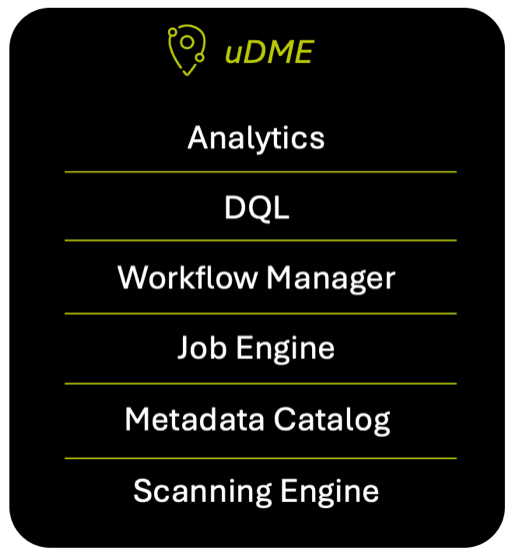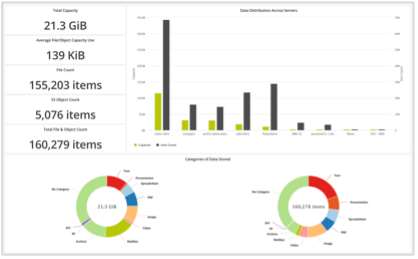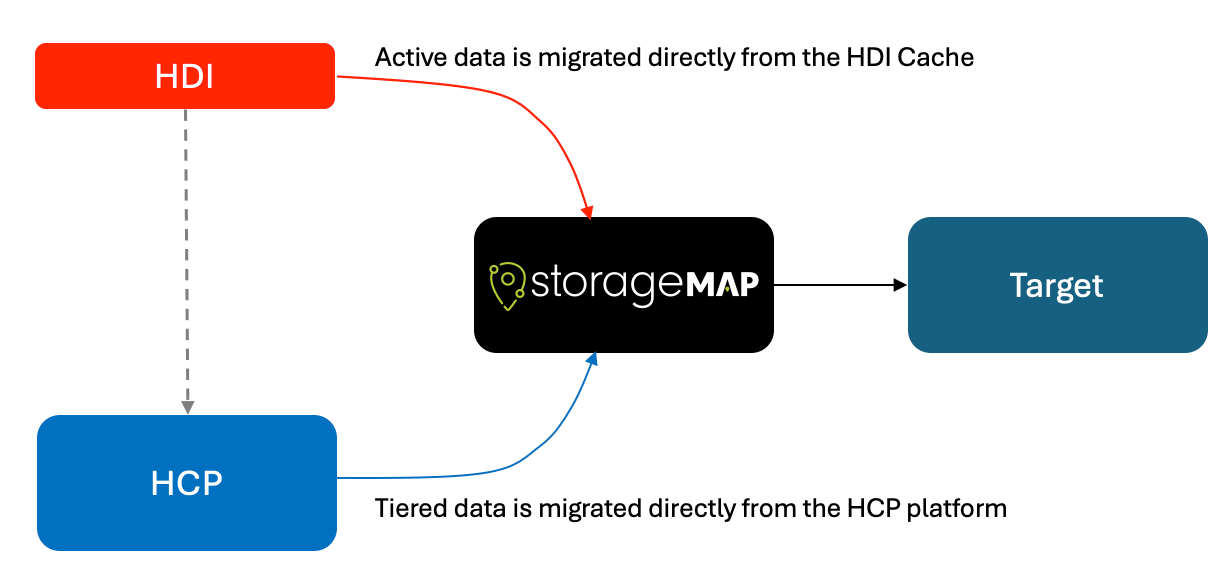StorageMAP 7.1 Launch Adds More Solutions To Solve Unstructured Data Challenges
Today, we are launching the latest version of our powerful heterogeneous unstructured data management platform. When we announced StorageMAP 7.0 in June, we talked about offering enterprises insights to drive better control, portability, optimization, and management of their unstructured data. StorageMAP 7.1 takes it a step further and solves some focused challenges facing our customers globally, including offering an innovative HDI Archive Appliance Bypass feature, example dashboards, and the most important one, improvements to scalability and performance. Here’s a closer look:
Solving for: Scalability and performance
StorageMAP is constantly evolving and improving. With the release of version 7.1, this trend continues with many behind-the-scenes improvements in scalability and performance.
For example, the Unstructured Data Mobility Engine (uDME) at the core of StorageMAP has been updated with new enhancements to address ever-growing scalability and performance challenges present in modern, unstructured data environments.
Why this matters
Scale is one of the most critical factors in dealing with unstructured data management in today’s large and complex environments. The challenge has two dimensions: 1) the capacity being managed and 2) the number of items (i.e., files and objects) being managed. Capacity and item count combine to create a challenge only StorageMAP can address. In contrast, trying to manage a large environment with a solution that cannot handle scale will result in disappointment, failed projects, and a sunk cost in software that doesn’t deliver the desired value. With its industry-best ability to handle scale, StorageMAP solves the problem altogether.

Solving for: Companies facing migration inefficiencies and performance bottlenecks
StorageMAP 7.1 employs an HDI Archive Appliance Bypass feature to drastically increase migration performance for archived data using the Hitachi Data Ingestor (HDI).
The “bypass” involves using multiple StorageMAP connections to the storage systems – one connection to the primary storage system and a second connection to the archive storage system. These connections effectively bypass the middleware HDI archiving appliance, which is responsible for both relocating data to the archive storage system and retrieving it when a client application requests archived data.
Why this matters
The problem with the middleware archiving appliance is its significant performance limitations that make migrating all active and archived data an extremely slow process typically riddled with errors. Additionally, the migration workload on the archiving appliance hinders continued archival and retrieval operations. In bypassing the middleware and reading data directly from the primary and archive storage systems, StorageMAP greatly accelerates and enhances the accuracy of an otherwise problematic migration.
Solving for: Onboarding and usability
StorageMAP 7.1 offers sample dashboards to help customers get started with the creation of custom dashboards.
While StorageMAP version 7.0 introduced the ability to create a library of custom dashboards, version 7.1 provides example dashboards to seed the library for a new installation. These can be used out-of-the-box with a new installation of StorageMAP so customers can realize value even before they create their own custom dashboards.

Why this matters
With the 7.1 release, Datadobi is providing example dashboards that a customer can refer to for both ideas to include in their own custom dashboards. Customers can also refer to the definition of the widgets included in the example dashboards as a training aid that will help them derive value from StorageMAP quickly.
The bottom line
Datadobi continues to raise the bar on what it means to deliver the world’s most powerful, comprehensive, and real-world proven unstructured data management platform – not to mention the only true vendor-neutral option on the market today. Whether you’re dealing with complex migrations, working to lower risk and/or cost, or looking for a seamless way to gain greater value and insights from your data, StorageMAP 7.1 is the answer.
Ready to experience the difference? Reach out today to schedule a demo and to learn more about how StorageMAP can transform your cloud data file management strategy.
